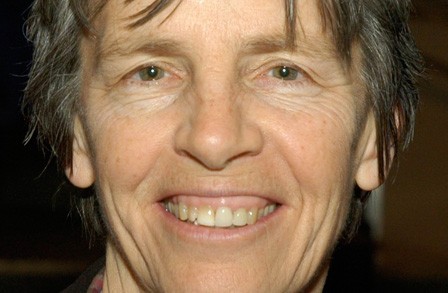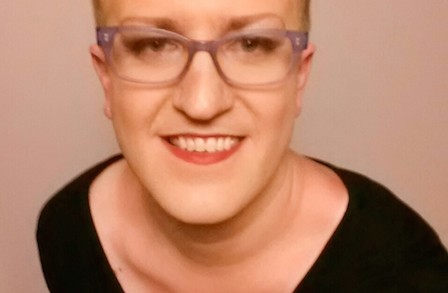Artifact: Excerpt of Maybe I Need You by Andrea Gibson
For the winter we heated our home from the steam off our own bodies?
I wrote you too many poems in a language I did not yet know how to speak
But I know now it doesn’t matter how well I say grace
if I am sitting at a table where I am offering no bread to eat
So this is my wheat field;
you can have every acre, Love…
Maybe I need you the way that big moon needs that open sea
Maybe I didn’t even know was here ‘til I saw you holding me
Give me one room to come home to
give me the palm of your hand
Every strand of my hair is a kite string
and I have been blue in the face with your sky
crying a flood over Iowa so you mother can wake to Venice
Lover, I smashed my glass slipper to build a stained glass window for every wall inside my chest
Now my heart is a pressed flower and a tattered Bible
It is the one verse you can trust
Identification: This self-published 2009 poem came right after Gibson’s big explosion into the poetry world, being the first poet to ever win the Women of the World Poetry Slam in Detroit in 2008. Maybe I Need You is Gibson’s personal struggle with their romantic relationship, producing one of their most well known lines, “I wrote you too many poems in a language I did not yet know how to speak.” Gibson is remarkable not only in the fact that they are a non-binary poet who prefers they/them pronouns, but their medium is often music and slam poetry that can be delivered both through text and through video.
Annotation: Gibson is the first poet to be explored in this contemporary LGBTQ archive that directly tackles gender queerness and the idea of slam poetry as a medium to convey and spread queer poetry. She’s a huge advocate for LGBT rights who also discusses intersectionality and how other aspects of identity, like race and ethnicity, plays into their personal experiences (as seen in her other poems, including one titled “A Letter to White Queers, A Letter to Myself” and “Privilege is Never Having to Think About It”). By addressing “white queers”, including themself, they consider how their race plays into their experience as an LGBT member and how it plays into their romantic relationships with others.



